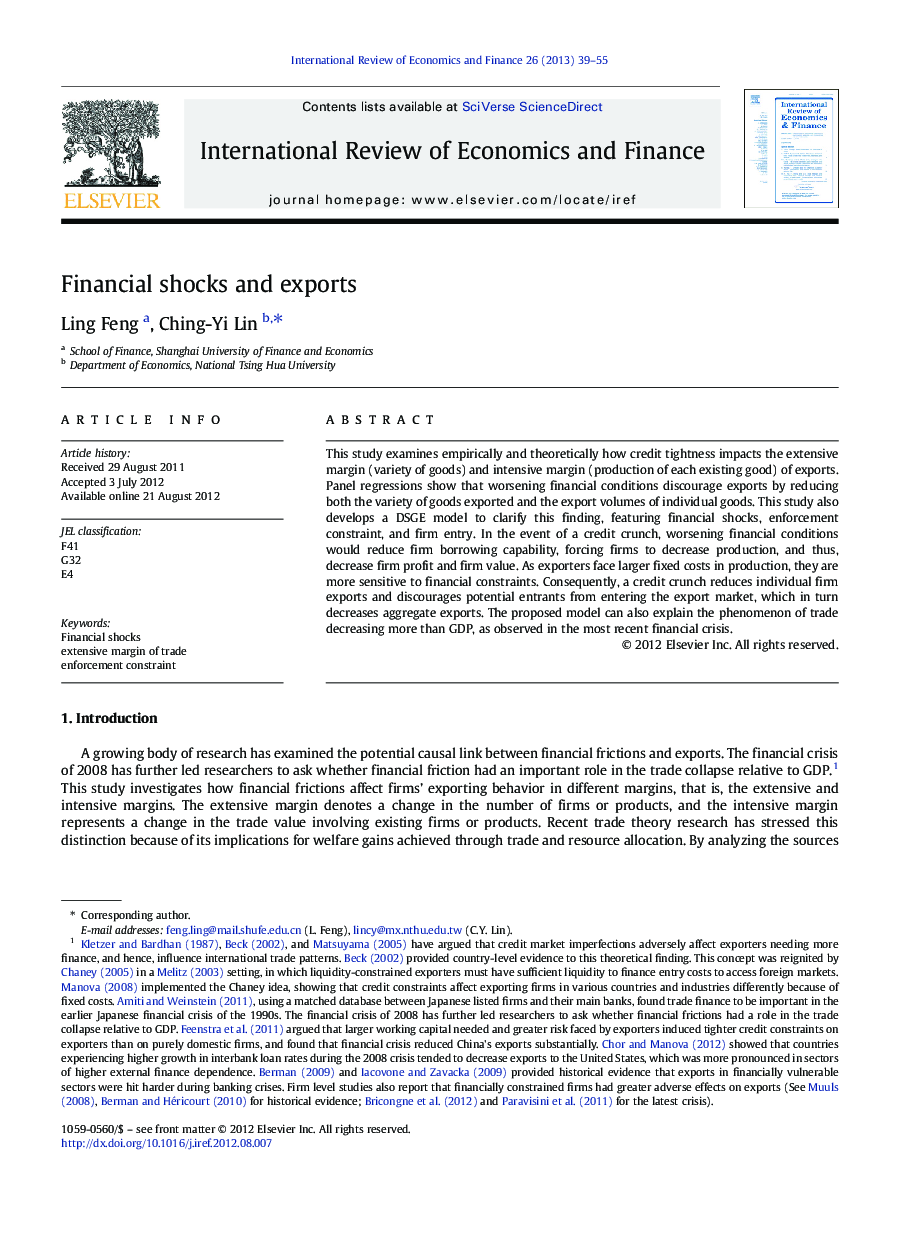| Article ID | Journal | Published Year | Pages | File Type |
|---|---|---|---|---|
| 5083755 | International Review of Economics & Finance | 2013 | 17 Pages |
Abstract
This study examines empirically and theoretically how credit tightness impacts the extensive margin (variety of goods) and intensive margin (production of each existing good) of exports. Panel regressions show that worsening financial conditions discourage exports by reducing both the variety of goods exported and the export volumes of individual goods. This study also develops a DSGE model to clarify this finding, featuring financial shocks, enforcement constraint, and firm entry. In the event of a credit crunch, worsening financial conditions would reduce firm borrowing capability, forcing firms to decrease production, and thus, decrease firm profit and firm value. As exporters face larger fixed costs in production, they are more sensitive to financial constraints. Consequently, a credit crunch reduces individual firm exports and discourages potential entrants from entering the export market, which in turn decreases aggregate exports. The proposed model can also explain the phenomenon of trade decreasing more than GDP, as observed in the most recent financial crisis.
Keywords
Related Topics
Social Sciences and Humanities
Economics, Econometrics and Finance
Economics and Econometrics
Authors
Ling Feng, Ching-Yi Lin,
